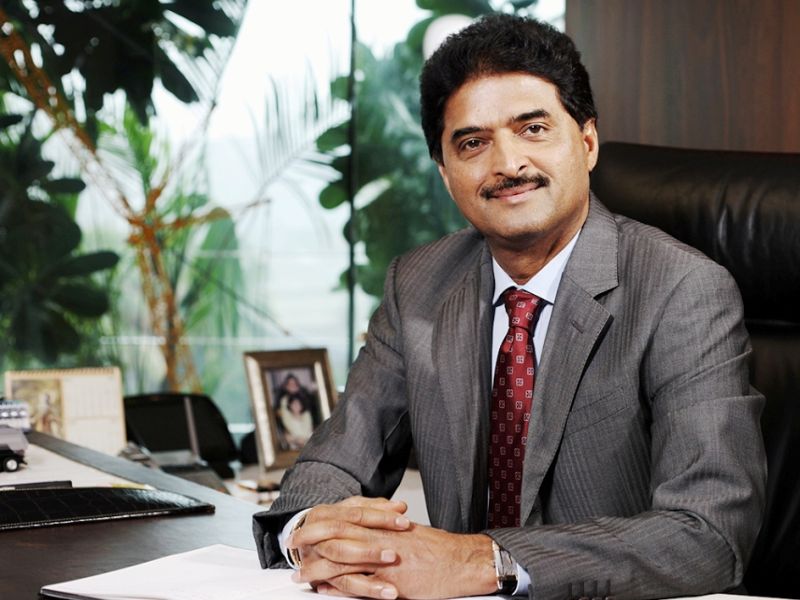[vc_row][vc_column][vc_column_text]
With the GST boost, Allcargo Logistics is planning an aggressive domestic play by entering the last-mile delivery space and has set a target of trebling its domestic revenue at Rs 1,500 crore from the segment by 2020.
With the GST boost, the Allcargo Logistics is planning an aggressive domestic play by entering the last-mile delivery space and has set a target of trebling its domestic revenue at Rs 1,500 crore from the segment by 2020.
The company, a global leader in the LCL (less than container load) and FCL (full container load) segment through its European arm ECU Worldwide, will also invest around Rs 1,000 crore to double its exim warehousing/ CFS stations and logistics park capacity to 10 million sqft by 2020.
“We’ve already set a $2 billion revenue target for 2020. With the enabling environment after the goods and services tax (GST) rollout, I am sure this is easily achievable,” Allcargo Logistics founder and chairman Shashikiran Shetty revealed. “Accordingly, we’ve revised our domestic plans and decided to enter the last-mile delivery space this year itself,” he said.
“We expect our domestic revenue to touch Rs 1,500 crore by 2020 from around Rs 500 crore in fiscal 2017; and the lion’s share of this incremental revenue should come from the new segment,” Shetty said.
He said the company will focus on the booming e-commerce space under the domestic focus where it already works will all key players as a B2B player, but not into last mile delivery. It works with auto players like Tata Motors, Ashok Leyland, Eicher and Volvo for domestic freight.
In fiscal 2017, Allcargo, which is an NVOCC (non-vessel operating common carrier), reported net profit of Rs 230.4 crore on a revenue of Rs 5,568 crore and a debt of Rs 300 crore. Almost 75 per cent of the income came from global operations.
Allcargo and its two subsidiaries–ECU Worldwide (acquired in 2006 in Belgium), Avvashya CCI–are held by the Avvashya Group, and lead the global market LCL and FCL segments with footprint in over 160 countries.
On the impact of the GST on the logistics sector, where government expects the savings to be around 20 percent, Shetty said the benefits will come over the next three-six months while warehousing operational coast will see 10-20 percent with GST depending on the location.
“With GST in place, we’ve decided to invest Rs 1,000 crore into logistics parks and warehouses to double our capacity to 10 million sqft by 2020,” Shetty said.
Allcargo is building its largest multi-modal logistics park at Jhajjar in Haryana on a 180 acre land which will be ready by next March, Shetty said, adding that the company expects the final customs clearance for its 20 acre CFS in Kolkata anytime now and commission it by mid-August.
Allcargo has also acquired land for exim warehouses/ CFSes in Bengaluru (100 acre), Hyderabad (a 40-acre CFS will be ready soon), Chennai (54 acre) and Nagpur (60 acre) into which it will pump in around Rs 1,000 crore.
Currently it has about five million sqft of warehouses/CFses — two each at Nhava Sheva/Mumbai, and Mundra; one each at Pithampur (Indore), Dadri near New Delhi and Chennai.
“Of Rs 1,000 crore capex, Rs 600 crore will be to set up warehouses/CFSes and the rest will go into developing the allied infrastructure like rail lines and racks,” Shetty said.
When asked whether they will invest separately for the last-mile delivery, he answered in the negative saying, “We’ll be converting a part of exim warehouses into domestic warehouses to save on cost and land acquisition troubles.”
On his growth plans, Shetty said it will be a three- pronged strategy involving organic and inorganic growth opportunities, hiring world class talent and increasing capacity by global ties-ups or domestic acquisitions.
[/vc_column_text][/vc_column][/vc_row]







